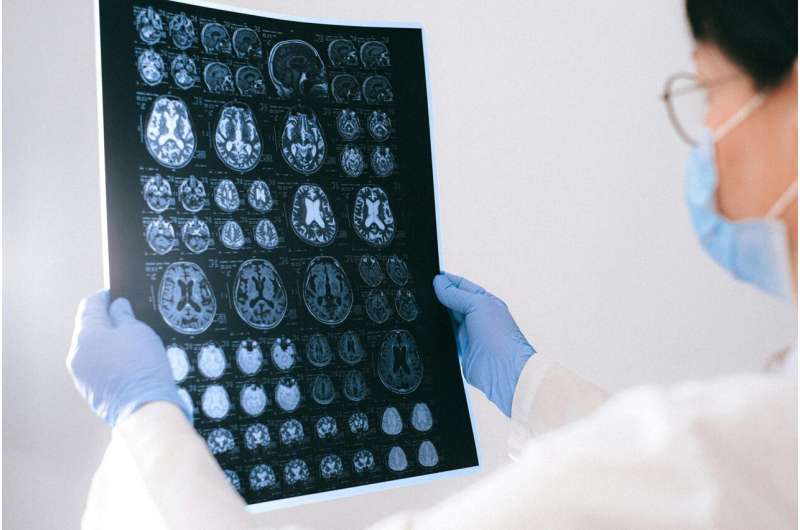A recent study from the University of the Sunshine Coast’s Thompson Institute has brought to light the relationship between lifestyle choices and early indicators of brain aging, particularly concerning dementia risk. The findings emphasize how specific modifiable factors such as diet, sleep patterns, and physical activity levels can influence brain health even before cognitive decline becomes apparent.
Understanding Brain Aging
According to Dr. Thomas Pace, the lead author of the study published in Age and Ageing, there is compelling evidence suggesting that certain lifestyle factors are intrinsically linked to reduced white matter volume in the brain and an imbalance in overall brain activity. This correlation raises questions about the potential for lifestyle choices to impact brain aging significantly.
"We aimed to determine if factors known to influence dementia risk could also correlate with biological and functional markers of brain aging," noted Dr. Pace. Although the study design was not longitudinal—meaning it does not definitively establish causation—it does show a notable relationship between modifiable lifestyle habits and early indicators of brain aging.
Research Methodology
The study utilized the CogDrisk tool, developed by Neuroscience Research Australia and the University of New South Wales, to evaluate dementia risk based on demographic and lifestyle factors. Participants underwent various assessments, including:
- Brain Imaging: Magnetic Resonance Imaging (MRI) to measure brain structure.
- Electrical Activity Monitoring: Electroencephalography (EEG) to assess brain electrical activity.
- Cognitive Assessments: A series of tests to evaluate memory and cognitive abilities.
This multi-faceted approach allowed researchers to discern the connection between lifestyle choices and brain health among healthy older adults.
Key Findings
The study revealed that individuals with a higher modifiable dementia risk displayed significant correlations with:
| Indicator | Description | Significance |
|---|---|---|
| White Matter Volume | Reduction in total brain white matter, a known biomarker of aging. | Linked to cognitive functioning impairment. |
| Brain Activity Balance | Altered 1/f aperiodic brain activity, indicating a lack of electrical balance. | New marker for assessing brain health. |
Dr. Pace emphasized the relevance of white matter volume reduction, which has a well-established relationship with early brain aging. The discovery of altered electrical activity balance adds a novel perspective to the understanding of brain health changes associated with aging.
Implications for Dementia Risk Management
With dementia poised to become the leading cause of death in Australia, according to the Australian Bureau of Statistics, the importance of preventive measures is paramount. Dr. Sophie Andrews, co-author of the study and head of the Healthy Brain Aging Program, suggests that modifiable lifestyle factors present a viable opportunity for individuals to reduce their risk of dementia significantly.
"The exciting aspect of modifiable factors is that they are changeable," stated Dr. Andrews. "Simple lifestyle changes can reduce both dementia risks and the signs of brain aging."
Practical Recommendations
To lower future dementia risk, the researchers recommend integrating the following lifestyle adjustments:
- Adopting a Mediterranean-style diet rich in fruits, vegetables, whole grains, and fish.
- Aiming for 7-9 hours of quality sleep each night.
- Engaging in regular physical activity to promote brain health.
- Maintaining strong social connections to enhance emotional well-being.
These lifestyle changes highlight the flexibility of our lifestyle choices, essentially allowing individuals to take control of their brain health.
“Your lifestyle decisions can have a lasting impact on your brain, and fortunately, those choices can be modified for better health outcomes.” – Dr. Thomas Pace
Conclusion
The findings from this research hold significant implications, underscoring the importance of early intervention in lifestyle modification to combat future dementia risk. The relationship established between lifestyle choices and brain health suggests that individuals can proactively work towards reducing their risk of dementia through conscious efforts and informed decisions.
References
[1] Pace, T., et al. (2024). Modifiable dementia risk associated with smaller white matter volume and altered 1/f aperiodic brain activity: cross-sectional insights from the LEISURE study. Age and Ageing.
[2] Lifespan.io














Discussion